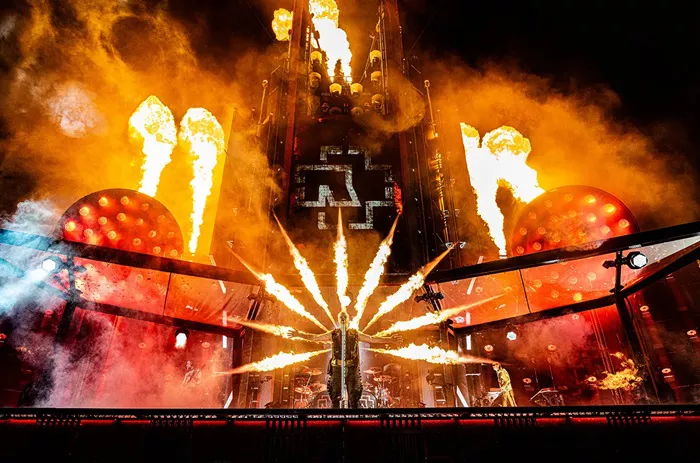The music landscape is vast and diverse, with genres constantly evolving and overlapping. Two genres that often spark confusion and debate are metal and goth music. While both genres share some aesthetic similarities and have overlapping fan bases, they are distinct in their origins, characteristics, and cultural impacts. This article explores whether metal is considered goth music by delving into the history, defining features, and intersections of both genres.
1. History of Metal and Goth Music
Origins of Metal
Metal music, which emerged in the late 1960s and early 1970s, is characterized by its heavy sound, powerful guitar riffs, and aggressive lyrics. The genre originated from hard rock and blues rock, with pioneering bands like Black Sabbath, Led Zeppelin, and Deep Purple laying the groundwork. Metal quickly diversified into subgenres, including heavy metal, thrash metal, death metal, black metal, and more, each with its unique sound and cultural significance.
Origins of Goth Music
Goth music, on the other hand, evolved from the post-punk movement of the late 1970s and early 1980s. It is known for its dark, melancholic sound and lyrical themes that explore death, romance, and existential despair. Key bands in the goth genre include Bauhaus, Siouxsie and the Banshees, The Cure, and Joy Division. The genre’s aesthetic, characterized by dark clothing, dramatic makeup, and a penchant for the macabre, significantly influenced the broader goth subculture.
2. Defining Features of Metal
Musical Characteristics
Metal music is marked by its loudness, distortion, and intensity. Key elements include:
Heavy Guitar Riffs: The guitar work in metal is often complex, featuring power chords, fast picking, and extensive use of distortion.
Powerful Vocals: Metal vocals range from melodic singing to aggressive growling and screaming, depending on the subgenre.
Strong Rhythms: Metal songs often feature complex drumming patterns with a heavy emphasis on double bass drumming.
Dynamic Structures: Metal compositions can be highly intricate, with frequent tempo changes and elaborate song structures.
Lyrical Themes
The lyrics in metal music often explore themes such as rebellion, power, fantasy, war, and existentialism. Subgenres like death metal and black metal delve into darker topics, including mortality, anti-religious sentiments, and mythological tales.
3. Defining Features of Goth Music
Musical Characteristics
Goth music has a distinct sound that sets it apart from other genres. Key elements include:
Atmospheric Sound: Goth music often features ethereal, haunting melodies with prominent use of synthesizers and effects.
Deep Vocals: Vocals in goth music are typically deep and resonant, conveying a sense of melancholy and introspection.
Minimalistic Instrumentation: Unlike the heavy instrumentation of metal, goth music often employs a minimalist approach, focusing on creating an atmospheric soundscape.
Melancholic Melodies: The melodies in goth music are generally slower and more somber, emphasizing emotional depth.
Lyrical Themes
Goth lyrics often explore themes of romanticism, existential despair, death, and introspection. The genre’s poetic and often literary approach to songwriting sets it apart from the more straightforward, aggressive lyrics found in metal.
4. Cultural and Aesthetic Overlaps
Shared Aesthetics
Both metal and goth music share some visual and cultural elements. The dark, dramatic fashion associated with goth—characterized by black clothing, heavy makeup, and Victorian-inspired attire—can also be found in various metal subcultures, particularly in black metal and gothic metal. This shared aesthetic has led to some crossover in fan bases and a blending of styles at music festivals and events.
Subgenre Crossovers
Several subgenres bridge the gap between metal and goth music, further blurring the lines between the two. These include:
Gothic Metal: Combining the heaviness of metal with the atmospheric elements of goth, bands like Paradise Lost, Type O Negative, and Lacuna Coil exemplify this fusion.
Symphonic Metal: Bands such as Nightwish and Epica incorporate orchestral and operatic elements, which align with the dramatic flair of goth music.
Industrial Metal: Drawing from the industrial sounds of goth-adjacent bands, industrial metal groups like Ministry and Nine Inch Nails mix electronic elements with metal’s intensity.
5. Key Differences
Musical Complexity
While both genres can be musically complex, metal often emphasizes technical proficiency and speed, particularly in subgenres like thrash and progressive metal. Goth music, in contrast, tends to focus on creating mood and atmosphere, often using simpler, more repetitive musical structures to evoke a specific emotional response.
Vocal Styles
The vocal styles in metal and goth music are distinctly different. Metal vocals can range from melodic to harsh growls and screams, often requiring a significant degree of vocal power and stamina. Goth vocals, on the other hand, are typically more subdued and resonant, aiming to convey emotion through tone and delivery rather than sheer force.
Audience and Cultural Impact
While there is overlap, the core audiences of metal and goth music differ in their cultural backgrounds and values. Metal fans often embrace the genre’s rebellious, anti-establishment ethos, while goth fans are more likely to be drawn to the introspective, artistic aspects of goth culture. Both genres have had significant cultural impacts, influencing fashion, literature, and visual arts, but they appeal to different sensibilities.
See Also: 15 Best Progressive Metal Songs of All Time
Conclusion
So, is metal considered goth music? The answer is nuanced. While metal and goth music share some aesthetic and cultural similarities, they are distinct genres with unique origins, musical characteristics, and cultural impacts. Metal is not inherently goth music, but there are intersections where the two genres blend, particularly in subgenres like gothic metal and industrial metal. Understanding the differences and appreciating the unique qualities of each genre can enhance our appreciation of their contributions to the broader musical landscape. Whether you’re a fan of the heavy, aggressive sounds of metal or the dark, atmospheric melodies of goth, both genres offer rich, immersive experiences that resonate with listeners on different levels.

